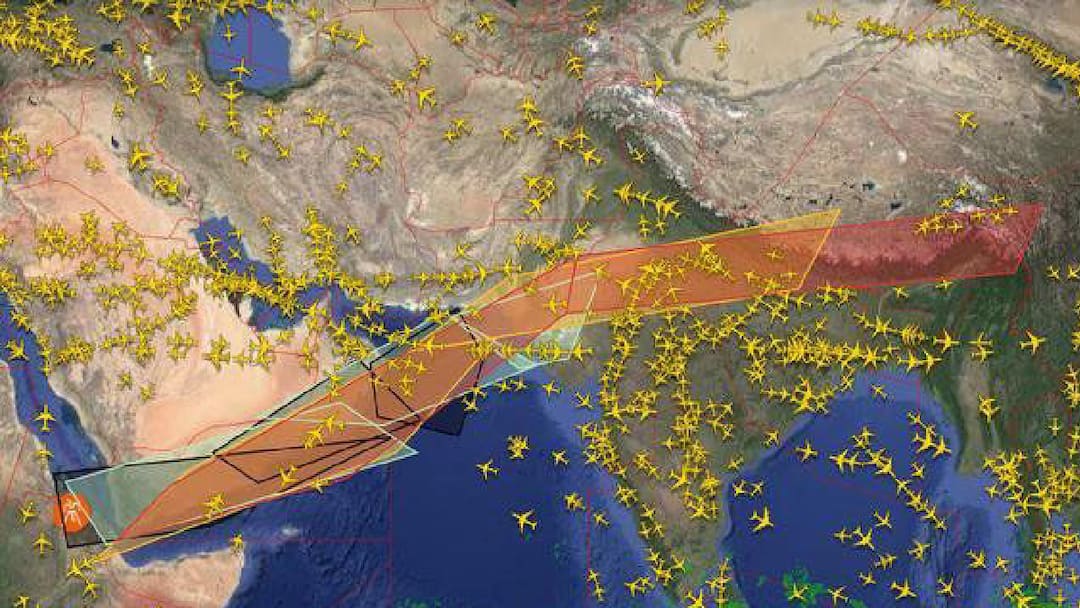The Directorate General of Civil Aviation (DGCA) has issued a critical safety advisory to all airlines following the eruption of Ethiopia’s Hayli Gubbi volcano. Volcanic ash from the eruption is drifting across parts of the Middle East, affecting air routes that pass through the Muscat Flight Information Region.
Airlines Urged to Avoid Affected Zones
According to the DGCA, a Volcanic Ash Advisory and an ASHTAM have already been released by the Toulouse Volcanic Ash Advisory Centre and the Airports Authority of India. Airlines have been instructed to avoid all affected areas and altitudes to ensure passenger safety.
- The regulator has emphasised that operators should:
- Review operational manuals for volcanic ash procedures.
- Brief cockpit and cabin crew on the latest safety protocols.
- Adjust flight planning and routing based on current advisories.
- Continuously monitor NOTAM and meteorological updates.
- Immediately report any suspected ash encounters, such as engine fluctuations or unusual cabin odours.
Post-Flight and Airport Safety Measures
Airlines are also directed to modify dispatch procedures as necessary and conduct post-flight inspections for aircraft that traverse ash-affected zones. Meanwhile, airports are advised to carry out immediate checks of runways, taxiways, and aprons if ash is detected, suspending operations until the surfaces are deemed safe.
23.11.2025#Ethiopia
Volcanic ash from Hayli Gubbi volcano in the Afar Rift Volcanic Province was detected at an altitude of 13,700 m. pic.twitter.com/t9XytUruHD— Climate Review (@ClimateRe50366) November 23, 2025
DGCA has urged operators to activate internal safety risk assessment processes and maintain 24/7 monitoring of satellite imagery, VAAC bulletins, and ash movement forecasts.
Flight Disruptions Already Reported
Some disruptions have already occurred due to the ash cloud. KLM Royal Dutch Airlines cancelled its Amsterdam-Delhi service (KL 871) and the return flight (KL 872). Indian carriers have also issued precautionary updates for passengers flying through the Middle East.
SpiceJet stated:
“Due to a volcanic eruption in Ethiopia, volcanic ash activity has been reported across parts of the Arabian Peninsula. This may impact flight operations for aircraft flying through these regions. As safety remains our top priority, our Flight Operations and Safety teams are closely coordinating with aviation authorities and continuously monitoring ash cloud movement. Passengers travelling to/from Dubai (DXB) are advised to check their flight status.”
Similarly, Akasa Air confirmed that it is monitoring the situation and assessing potential impacts on nearby regions. The airline emphasised that passenger safety remains its highest priority and that all operations comply with international aviation safety protocols.
The Eruption and Its Wider Impact
The Hayli Gubbi volcano erupted on Sunday for the first time in nearly 10,000 years, sending a massive ash plume across the Red Sea toward Oman and Yemen before drifting further east. Authorities are actively tracking the ash cloud’s movement.
The Toulouse Volcanic Ash Advisory Centre has noted that a significant portion of the ash cloud is now drifting toward northern India, prompting heightened vigilance among airlines and aviation authorities.



